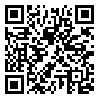دوره 9، شماره 17 - ( 6-1398 )
جلد 9 شماره 17 صفحات 26-15 |
برگشت به فهرست نسخه ها
Download citation:
BibTeX | RIS | EndNote | Medlars | ProCite | Reference Manager | RefWorks
Send citation to:



BibTeX | RIS | EndNote | Medlars | ProCite | Reference Manager | RefWorks
Send citation to:
Balali M, Vaez Mousavi M K, Ghasemi A. The role of affordances in developing children manipulative movement skills:
an application of challenge point framework. JRSM 2019; 9 (17) :15-26
URL: http://jrsm.khu.ac.ir/article-1-2906-fa.html
URL: http://jrsm.khu.ac.ir/article-1-2906-fa.html
بلالی مرضیه، واعظ موسوی محمد کاظم، قاسمی عبدالله. نقش فراهم سازها در رشد مهارت های حرکتی بنیادی دستکاری کودکان:
کاربردی از چارچوب نظری نقطه چالش. پژوهش در مدیریت ورزشی و رفتار حرکتی. 1398; 9 (17) :15-26
چکیده: (11683 مشاهده)
هدف تحقیق حاضر بررسی پیش بینیهای نظریه نقطه چالش (گاداگنولی و لی، 2004) از طریق مقایسه دو گروه بازیهای چالشی و غیرچالشی در توسعه مهارتهای بنیادی دستکاری بود. برای این منظور 30 کودک 4 تا 6 سال از یکی از مهد کودکهای تهران انتخاب و بر اساس نمرههای پیشآزمون در دو گروه قرار داده شدند. در هر دو گروه، از بازیهایی جهت توسعه مهارتهای دستکاری استفاده شد با این تفاوت که در گروه بازی های چالشی، سختی تکلیف به صورت پیشرونده افزایش پیدا میکرد، در حالی که سختی تکلیف در گروه دیگر ثابت باقی میماند. مداخله 8 هفته، 2 جلسه در هفته و 42 دقیقه در هر جلسه بود. مهارتهای دستکاری کودکان با استفاده از آزمون رشد حرکتی اولریخ، ویرایش دوم، در ابتدا و یک هفته پس از انتهای دوره مداخله اندازهگیری شد. نتایج تحلیل واریانس چند متغیره نشان داد پیشرفت دو گروه در نمره کلی مهارتهای دستکاری و همه خرده مقیاسها به جز دریافت کردن با هم اختلاف معناداری نداشت. در مجموع، هر چند پیشبینیهای نظریه نقطه چالش به طور کامل در توسعه مهارتهای دستکاری کودکان سالم مورد تایید قرار نگرفت اما برتری گروه چالشی در مهارت دریافت نشان داد این روش در توسعه مهارتهای پیچیده کاربرد بیشتری دارد.
نوع مطالعه: پژوهشي |
موضوع مقاله:
رفتار حرکتی
دریافت: 1394/8/25 | پذیرش: 1394/10/20 | انتشار: 1398/6/10
دریافت: 1394/8/25 | پذیرش: 1394/10/20 | انتشار: 1398/6/10
فهرست منابع
1. زارع زاده،, فرخی،, کاظم نژاد. تعیین پایایی و روایی آزمون رشد حرکتی درشت در کوکان 3 تا 11 ساله شهر تهران. المپیک. 1388;4:98-85.
2. Barnett LM, Morgan PJ, van Beurden E, Beard JR. Perceived sports competence mediates the relationship between childhood motor skill proficiency and adolescent physical activity and fitness: a longitudinal assessment. International journal of behavioral nutrition and physical activity. 2008;5(1):40. [DOI:10.1186/1479-5868-5-40]
3. Zask A, Barnett LM, Rose L, Brooks LO, Molyneux M, Hughes D, et al. Three year follow-up of an early childhood intervention: is movement skill sustained. Int J Behav Nutr Phys Act. 2012;9(1):127. [DOI:10.1186/1479-5868-9-127]
4. Gallahue DL, Ozmun JC, Goodway J. Understanding motor development: Infants, children, adolescents, adults: Mcgraw-hill Boston; 2006.
5. Logan S, Robinson L, Wilson A, Lucas W. Getting the fundamentals of movement: a meta‐analysis of the effectiveness of motor skill interventions in children. Child: care, health and development. 2012;38(3):305-15. [DOI:10.1111/j.1365-2214.2011.01307.x]
6. Guadagnoli MA, Lee TD. Challenge point: a framework for conceptualizing the effects of various practice conditions in motor learning. Journal of motor behavior. 2004;36(2):212-24. [DOI:10.3200/JMBR.36.2.212-224]
7. Guadagnoli M, Morin MP, Dubrowski A. The application of the challenge point framework in medical education. Medical education. 2012;46(5):447-53. [DOI:10.1111/j.1365-2923.2011.04210.x]
8. Hitchcock ER, Mcallister Byun T. Enhancing generalisation in biofeedback intervention using the challenge point framework: A case study. Clinical linguistics & phonetics. 2015;29(1):59-75. [DOI:10.3109/02699206.2014.956232]
9. Pesce C, Crova C, Marchetti R, Struzzolino I, Masci I, Vannozzi G, et al. Searching for cognitively optimal challenge point in physical activity for children with typical and atypical motor development. Mental Health and Physical Activity. 2013;6(3):172-80. [DOI:10.1016/j.mhpa.2013.07.001]
10. Cantin N, Ryan J, Polatajko HJ. Impact of task difficulty and motor ability on visual-motor task performance of children with and without developmental coordination disorder. Human movement science. 2014;34:217-32. [DOI:10.1016/j.humov.2014.02.006]
11. Sanli EA, Lee TD. What Roles Do Errors Serve in Motor Skill Learning? An Examination of Two Theoretical Predictions. Journal of motor behavior. 2014;46(5):329-37. [DOI:10.1080/00222895.2014.913544]
12. Sanli EA, Lee TD. Nominal and functional task difficulty in skill acquisition: Effects on performance in two tests of transfer. Human movement science. 2015;41:218-29. [DOI:10.1016/j.humov.2015.03.006]
13. Donath L, Faude O, Hagmann S, Roth R, Zahner L. Fundamental movement skills in preschoolers: a randomized controlled trial targeting object control proficiency. Child: care, health and development. 2015. [DOI:10.1111/cch.12232]
14. Kerkez FI, Robinson L. The Efficacy of Motor Skill Interventions among Turkish Preschoolers: A Review of the Turkish Literature and Recommendations. Middle-East Journal of Scientific Research. 2013;16(6):769-74.
15. Riethmuller AM, Jones RA, Okely AD. Efficacy of interventions to improve motor development in young children: a systematic review. Pediatrics. 2009;124(4):e782-e92. [DOI:10.1542/peds.2009-0333]
16. Hardy LL, King L, Farrell L, Macniven R, Howlett S. Fundamental movement skills among Australian preschool children. Journal of Science and Medicine in Sport. 2010;13(5):503-8. [DOI:10.1016/j.jsams.2009.05.010]
17. van Beurden E, Zask A, Barnett L, Dietrich U. Fundamental movement skills-how do primary school children perform? The 'Move it Groove it'program in rural Australia. Journal of Science and Medicine in Sport. 2002;5(3):244-52. [DOI:10.1016/S1440-2440(02)80010-X]
18. APACHE RG. ACTIVITY-BASED INTERVENTION IN MOTOR SKILL DEVELOPMENT 1. Perceptual and motor skills. 2005;100(3c):1011-20. [DOI:10.2466/pms.100.3c.1011-1020]
19. Haywood K, Getchell N. Life span motor development: Human kinetics; 2009.
20. Lee M, Chow J, Komar J, Tan C, Button C. Nonlinear Pedagogy: An Effective Approach to Cater for Individual Differences in Learning a. 2014. [DOI:10.1371/journal.pone.0104744]
21. Dienstmann R. Games for motor learning: Human Kinetics; 2008.
22. Rigoli D, Piek JP, Kane R, Oosterlaan J. Motor coordination, working memory, and academic achievement in a normative adolescent sample: Testing a mediation model. Archives of clinical neuropsychology. 2012;27(7):766-80. [DOI:10.1093/arclin/acs061]
| بازنشر اطلاعات | |
 | این مقاله تحت شرایط Creative Commons Attribution-NonCommercial 4.0 International License قابل بازنشر است. |







